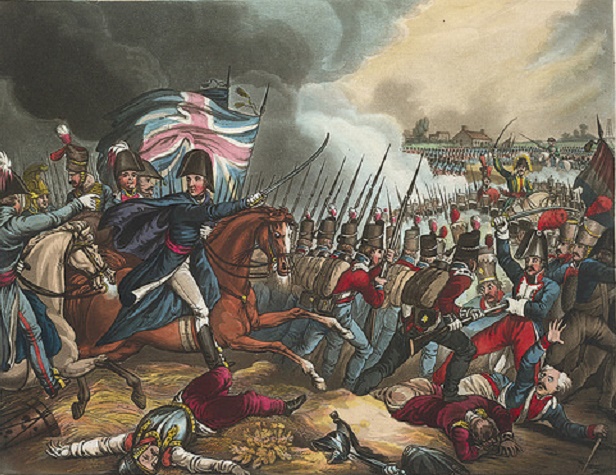The defeat of Napoleon Bonaparte at Waterloo is one of the most famous military defeats of all time. Many use it as something of a real-life parable about the pitfalls of hubris. Now, it appears that a newly discovered cause for the defeat may change the way people look at Waterloo. It turns out that Napoleon Bonaparte may not be to blame for his own defeat; instead, the blame falls on a poorly constructed strategic map.
The major problem with his strategic map is that it likely had his army aiming their artillery in the wrong location. The map was off by approximately a kilometer in some places, which just so happened to be the exact range of the artillery cannons. The falsity of the map used by Napoleon Bonaparte was discovered by a Belgian illustrator named Bernard Coppens. He saw the blood-stained map at a military museum in Brussels and discovered that something about it did not look quite right. The printed strategic map was subsequently compared to a hand-drawn copy, whereupon documentarian Franck Ferrand claims a printing error was discovered.
The most notable errors of the map are the appearance of a non-existent curved road and the fact that Mont St. Jean, an important strategic landmark, appears in the wrong place. The brother of Napoleon Bonaparte, Jerome, wrote a letter to the French leader in which he states that the general looked absolutely lost while on the battlefield at Waterloo. Given the errors of his map, this is most certainly an apt assessment of the French leader’s situation, The Telegraph reports.
Baron Antoine-Henri de Jomini, a Swiss military writer, claimed that the Duke of Wellington was remarkably cool under pressure, and that the British infantry was firm, forming something of a phalanx to combat Napoleon Bonaparte and his cavalry charges. The French general, on the other hand, had already had his spirits injured by his exile on the Isle of Elba. It had also been only a year since his suicide attempt, meaning that his troops may not have had as much faith in him as Wellington’s.
Naturally, a faulty map is not solely to blame for the defeat of Napoleon Bonaparte. He also greatly underestimated the Duke of Wellington, adding some truth to the notion that Waterloo represents a defeat based on hubris. Not only did Napoleon Bonaparte underestimate the Duke of Wellington but, sadly, it would appear that he overestimated his own resources.
